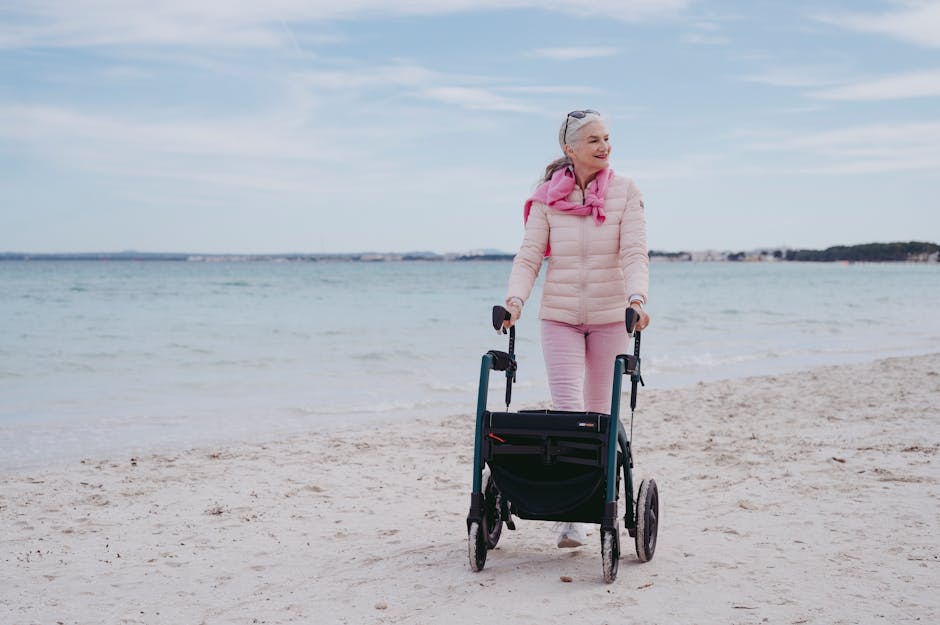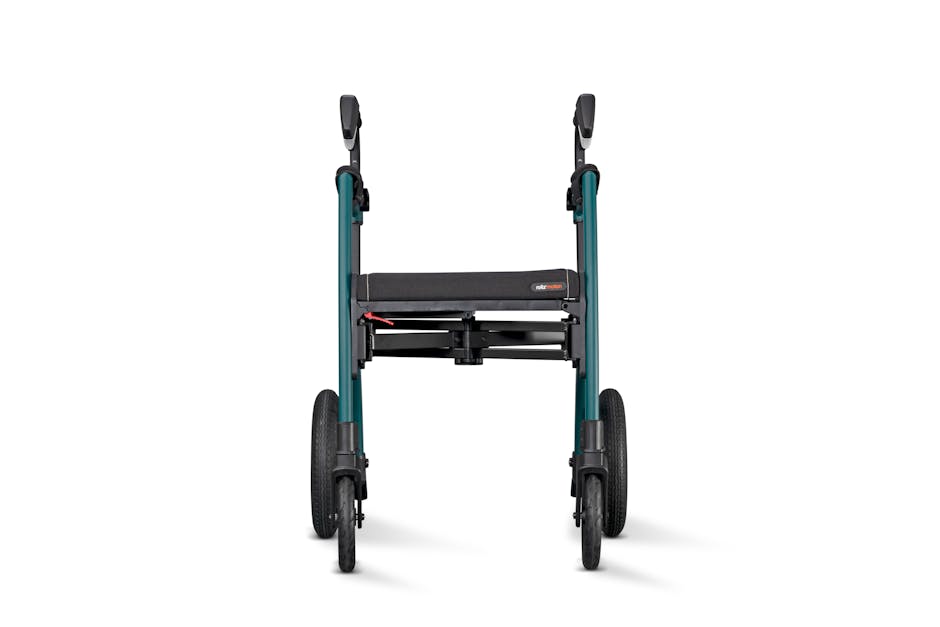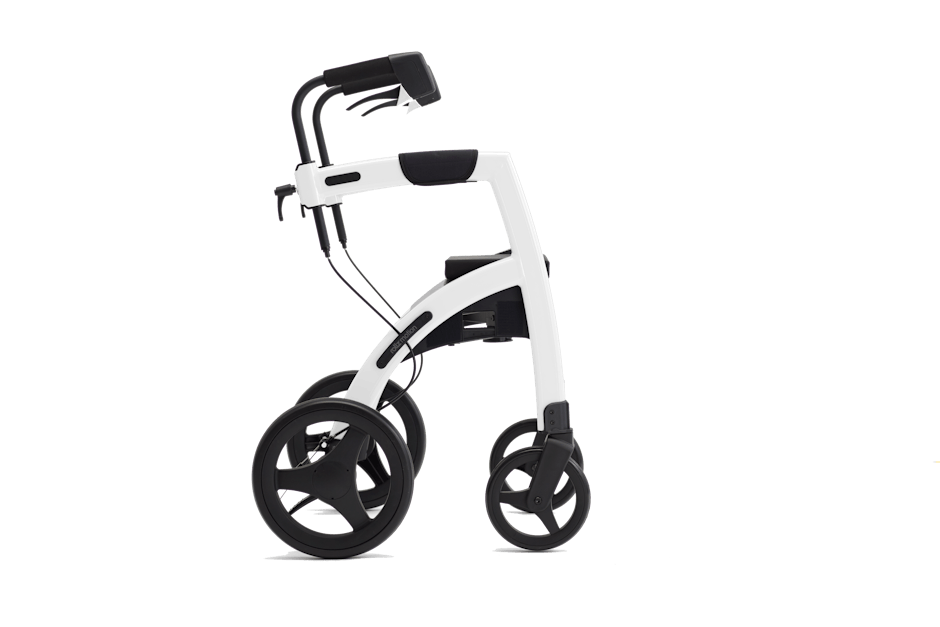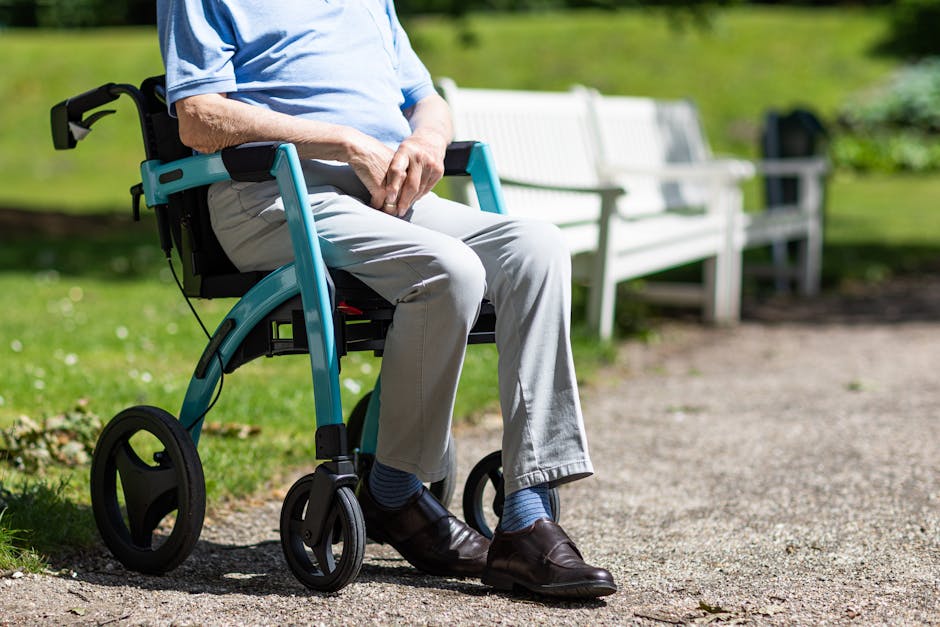423 E. Roosevelt Road, Lombard, IL 60148
630 895 8383

When it comes to ensuring the safety and independence of our loved ones, walkers for seniors play an essential role. These mobility aids not only provide much-needed physical support but also contribute to overall well-being by enabling seniors to move more confidently and independently. Finding the right walker means considering factors such as stability, ease of use, and specific features that cater to individual needs. Here’s a quick guide to get you started:
Finding the appropriate walker is crucial for safety and comfort. To make an informed choice, let’s delve into the importance of using the right walker and the various types available.
My name is Sazan Sylejmani, and with my background in pharmacy and medical supplies, I’ve helped many seniors and caregivers select the perfect mobility aids for their needs.

Choosing the right walker is essential for maintaining mobility and independence. Here’s a look at the different types of walkers available for seniors:
Standard walkers are the most basic type. They have a sturdy frame and no wheels, which means users need to lift them to move forward. This type of walker provides excellent stability, making it ideal for those who need significant support.

Two-wheeled walkers add wheels to the front legs, making them easier to push than standard walkers. They still offer excellent stability but require less effort to move.

Four-wheeled walkers, or rollators, come with four wheels for even greater ease of movement. They often include features like hand brakes and a built-in seat, which allows users to rest when needed.

Rollators are advanced four-wheeled walkers with larger, more robust wheels. They are suitable for various terrains and often come with additional features like hand brakes for safety.

Upright walkers promote better posture by encouraging users to stand upright while walking. They reduce strain on the back and often include padded forearms and wide handgrips for added comfort.

Each type of walker serves distinct needs, so it’s important to choose the one that best fits the user’s specific requirements. Whether it’s a standard walker for maximum stability or a rollator for ease of movement and added features, there’s a walker out there to help every senior maintain their independence.
Choosing the right walker for seniors involves several key factors. Let’s break them down to make it easier for you.
The first thing to consider is weight capacity. Walkers come with different weight limits, usually ranging from 250 to 400 pounds. It’s crucial to choose a walker that can support the user’s weight safely.
*”Rollators typically weigh 15 to 20 pounds and can typically hold 250 to 300 pounds, depending on the model. The heavier model can also carry up to 400 pounds.”*
The size of the walker is also critical. It needs to fit the user’s body correctly. If the walker is too wide, the user may topple sideways. If it’s too deep, they might slip forward, causing back and neck issues.
“If the chair doesn’t fit their body correctly in the following two ways, nothing else is even slightly gonna work out: Is it actually the right size? Side to side and front to back.” (source)
Foldability is essential for storage and transportation. A walker that folds easily can be stored in tight spaces or transported in a car trunk. This feature is especially useful for seniors who travel or visit family often.
*”A folding mechanism is vital for storage and transportation. This feature allows the walker to collapse, making it easier to store in tight spaces like car trunks or closets.”*
Height adjustability ensures that the walker fits the user perfectly, which is crucial for maintaining good posture and reducing the risk of falls. Most top-rated walkers offer easy-to-use mechanisms to change the height.
“The ability to adjust the height of a walker is essential for ensuring it matches the user’s physical requirements.” (source)
Finally, comfort is a key factor. Look for walkers with padded seats and ergonomic handles. For rollators, a comfortable seat can provide a place to rest during long walks.
“For rollators, padded seats provide a comfortable place to rest during long walks or when waiting in lines.” (source)
Choosing the right walker involves balancing these factors based on individual needs. The goal is to enhance mobility while ensuring safety and comfort.
Next, we’ll look at the best walkers for specific needs, like balance problems and outdoor use.
For seniors facing balance issues, a four-wheel walker is often recommended. These walkers provide a sturdy base and help prevent falls. They come with built-in seats and brakes, making them ideal for those who need frequent rests or additional support while walking.
*”Four-wheeled walkers are often recommended because they provide a sturdy base that helps prevent falls.”*
Consider the Drive Medical Steerable Upright Walker. It has four wheels for maximum stability and is steerable for easy maneuvering, making it ideal for those with balance issues.
When it comes to outdoor use, large wheels and a durable frame are crucial. Walkers designed for outdoor use often have robust wheels that can handle various terrains, from sidewalks to grassy parks.
The Medline Empower Rollator is a great option. It’s versatile, with adjustable handles, a comfortable seat with a backrest, and a storage bag. Its large wheels provide stability and maneuverability, making it suitable for both indoor and outdoor use.
“Rollators are suitable for a variety of terrains. They include handbrakes for added safety, allowing the user to control the speed and park the walker securely.” (source)
For seniors who need a walker that’s easy to transport, lightweight and portable options are essential. Fold-N-Go models and walkers with aluminum frames are excellent choices.
The Able Life Space Saver Walker is ultra-compact and folds to a 5″ x 7″ footprint. This makes it ideal for travel or tight spaces. Its lightweight aluminum construction ensures easy handling without sacrificing durability.
*”The Able Life Space Saver Walker is ultra-compact, folds to a 5″ x 7″ footprint, and is ideal for travel or tight spaces.”*
Another option is the Drive Medical Folding Walker. This walker is lightweight, affordable, and folds for storage and transport, making it perfect for seniors on the go.
When selecting a walker, consider the specific needs of the user. Whether it’s for balance problems, outdoor use, or portability, there’s a walker designed to meet those needs.
Next, we’ll address common concerns and questions about choosing the right walker for seniors.
Medicare Part B can cover the cost of walkers if they are deemed medically necessary. This includes standard walkers and rollators. To qualify, a healthcare provider must prescribe the walker, and it must be purchased from a supplier that accepts Medicare.
Medicare classifies walkers as Durable Medical Equipment (DME). This means they must be able to withstand repeated use, be used for a medical purpose, and be appropriate for use in the home.
For more details, consult your healthcare provider or Medicare directly.
For seniors with balance problems, four-wheel walkers are often the best choice. These walkers provide continuous support and stability, which is crucial for those who struggle with balance.
A great example is the Medline Empower Rollator, which features adjustable handles and a comfortable seat with a backrest. It also has a storage bag, making it versatile and easy to use.
Another option is the Drive Medical Steerable Upright Walker. This walker promotes an upright posture, reducing back pain and fatigue, and is ideal for those with severe balance issues. Its four wheels offer maximum stability and support.
Choosing between a rollator and a walker depends on the individual’s mobility needs and support levels.
Walkers are best for those who need maximum stability and support. They are ideal for short distances and indoor use. For example, the Drive Medical Folding Walker is lightweight and sturdy, making it perfect for seniors who need stable support.
Rollators, on the other hand, are better for those who can walk but need occasional support. They are great for outdoor use and longer walks. The Vive 3 Wheel Rollator is lightweight and easy to maneuver, making it a good choice for seniors who need to rest frequently.
Understanding the specific needs and limitations of the user is crucial in making the right choice. Always consult with a healthcare professional to ensure the best fit for your mobility needs.
Choosing the right walker for seniors is more than just picking a mobility aid; it’s about enhancing independence and improving quality of life. The right walker can provide stability, support, and confidence, making everyday activities easier and safer.
When selecting a walker, consider the weight capacity, adjustability, and comfort. A walker that fits well and supports the body’s contours can prevent discomfort and improve posture. As one Quora user noted, “If the chair doesn’t fit their body correctly… nothing else is even slightly gonna work out.”
It’s also essential to think about the specific needs of the user. For instance, a four-wheel walker is excellent for those with balance issues, while a rollator with large wheels is perfect for outdoor use.
At Monty’s Home Medical, we understand that every senior’s needs are unique. Our expert team is dedicated to helping you find the perfect walker to suit your specific requirements. We invite you to explore our extensive range of walkers and other mobility aids in our store.
By choosing Monty’s Home Medical, you’re not just purchasing a mobility aid; you’re investing in a solution that supports an active, independent lifestyle. Let us help you or your loved one take the next step towards enhanced mobility and a more fulfilling life.
For more information and personalized advice, visit our store.